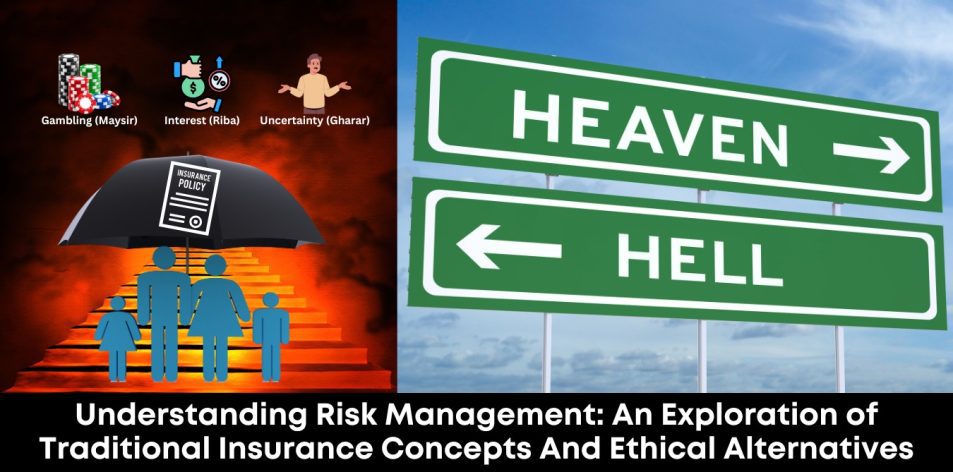Navigating Financial Security with Principle and Trust
In modern finance, insurance is a pervasive mechanism designed to manage risk by transferring the financial burden of potential loss from an individual to a larger pool. However, traditional commercial insurance, as widely practised, has been subject to detailed ethical examination by many scholars and financial experts who have identified core elements within it that conflict with fundamental principles of ethical business and financial practices. This article provides an overview of the key concepts that raise concerns about traditional commercial insurance and presents alternatives that align with ethical standards.
The Core Concepts of Traditional Commercial Insurance That Raise Concerns
The primary concerns often revolve around the presence of three key elements in conventional insurance contracts:
1. Unnecessary Uncertainty (Gharar)
Gharar refers to excessive uncertainty or ambiguity in a contract. In a conventional insurance policy, the payment of the premium is certain, but the payoff is uncertain: the insured person pays a premium without knowing if or when an incident will occur, or if they will ever receive a payout. Similarly, the insurance company cannot precisely predict the timing or size of the claims.
- Ethical Concern: This excessive uncertainty regarding the outcome of the contract (the payout) introduces an element of risk-taking that is deemed unethical in some financial transactions where clarity and defined outcomes are preferred.
2. The Element of Interest (Riba)
Riba refers to any unjust, unearned increase in money through interest, whether it is an excess charged in lending (usury) or an excess received in exchange. Insurance companies hold premium funds and invest them, often in interest-bearing accounts and securities. The eventual payout to the insured is often derived, in part, from these interest-based earnings.
- Ethical Concern: The pooling and investment of funds in interest-bearing assets and the eventual distribution of proceeds that are tainted by Riba is a central issue for many ethical analyses of the practice.
3. Financial Speculation/Gambling (Maysir)
Maysir refers to obtaining wealth easily by chance, referring to financial speculation or gambling. In conventional insurance, the contract involves one party gaining at the expense of another based on the occurrence of an unpredictable event.
- Ethical Concern: Some scholars argue that the commercial risk-taking structure—where the payout is dependent on an uncertain negative event (a loss occurring) for the insured to “win” a large sum, and the insurer hoping the event does not occur so they can “win” the premium—resembles a zero-sum, speculative game.
4. Ownership of Premiums
In traditional insurance, once the premium is paid, the funds generally become the property of the insurance company. If no claim is made, the insured person loses the premium entirely.
- Ethical Concern: This challenges the spirit of mutual cooperation and solidarity, where funds should ideally remain collective until they are needed by a member of the pool.
Ethical Alternatives: Takaful and Cooperative Models
To address these concerns and provide ethically sound solutions for risk management, alternatives have been developed:
- Takaful (Cooperative Insurance): This model is founded on the principle of mutual assistance and shared responsibility among a group of participants.
- How it Works: Participants contribute funds to a common pool (the Takaful fund) as donations (Tabarru’). These funds are used to pay claims for any member who suffers a loss. The operator manages the fund for a fee. Any surplus in the fund is typically distributed back to the participants, reflecting the cooperative nature and addressing the issue of Riba and Maysir.
- Investment: Takaful funds are invested strictly in ethically compliant assets and ventures.
Making Informed Financial Decisions
The concepts surrounding insurance and risk management require careful consideration to ensure alignment with ethical principles. By understanding the concerns related to unnecessary uncertainty, interest, and speculation in conventional commercial models, businesses and individuals can actively seek out Takaful and other cooperative methods that promote mutual assistance and ensure financial security while upholding ethical standards.

